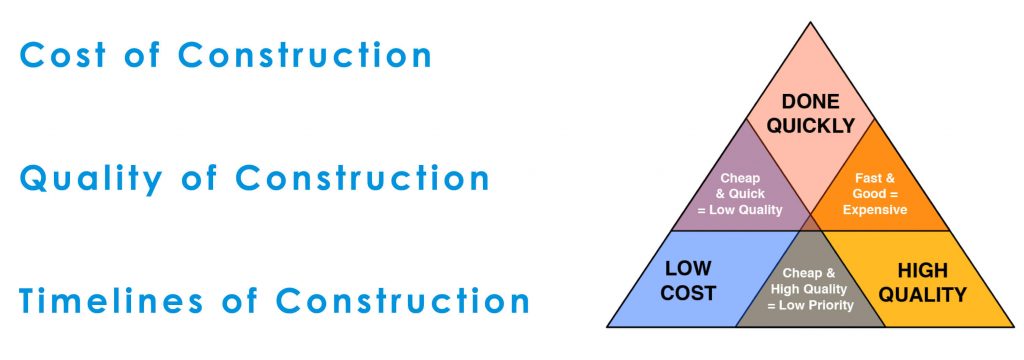The Oxford Dictionary defines the term ‘turnkey’ as a thing that is “complete and ready to use immediately”. Just as said, when this term is used in the context of project development, a turnkey contract is understood as a project designed, developed & equipped with all facilities by one company to another as mentioned under the contract.
We will examine the concept in detail to ensure that such a contract is executed correctly:
What is a Turnkey Contract?
It is a contract where an independent agent provides all materials and labour and does all the work necessary to complete a project for a fixed price.
Turnkey contracts are simply agreements between a builder and a business where the builder agrees to complete a project that is then readily available for the company.
If we go a bit deeper into this, the term “Turnkey” originated in U.S. oil and gas industries and has gradually spread to other countries.
Under a turnkey contract, the contractor performs engineering, procurement, and construction work and then hands over the completed works to the buyer so that business operations can begin.
Turnkey contracts involve the contractor providing everything necessary for a particular purpose. These are also sometimes called ‘Lump Sum Turnkey‘ or ‘LSTK‘, indicating a bargaining nature between the parties.
In exchange for a fixed price, the contractor is responsible for delivering the Project on time and at a satisfactory level of performance.
It is expected that the owners will pay a premium for a turnkey contract that includes a contingency allowance to cover the risk of things costing more than expected. As soon as the project is fully equipped and operational, the contractor’s responsibilities end.
The nature of turnkey contracts is highly specialized. Basically, it deals with companies which manufacture engineering equipment, build buildings and provide consulting services.
For example, a turnkey contract would be used to construct airports, office buildings, malls, skyscrapers, etc.
Thus, 3 types of enterprises take part in turnkey business activities:
- Manufacturers of engineering equipment;
- Construction companies; and
- Consulting firms.
Essential elements of a Turnkey Contract
There are three significant elements of a turnkey project: Design, Technology, and Supplies and Construction. Let’s see each of them in detail one by one:
Design
The success of the project depends a lot on its design. In turnkey projects and contracts, the project manager must work in detail on the design. Both parties must adhere to the preliminary agreement and cannot go beyond its scope.

Technology
After the contract design has been drafted, patents, know-how, and other contract elements are seen in action. These elements can be seen as incorporated into the design.
However, in certain cases, the contractor uses the technology of their parties either by virtue of his own contractual arrangements or as requested by the employer or his engineer.
Supplies and Construction
The contractor or the firm handles every aspect of construction from start to finish. In this way, the owner or the business doesn’t need to spend time searching for contractors and hiring them. They don’t even have to take part in the construction itself until it is completed.
All of this is achieved by having the project manager acquire materials from a specified subcontractor or limiting the selection of materials.
As a result, turnkey contracts are standard as they allow the employer to ensure the quality of the work and the buyer to negotiate the price of the materials directly.
Steps of fulfilling a Turnkey Contract
There are certain processes and steps that are involved in completing a turnkey project:
Step 1: Defining the Project
The formation of a turnkey contract is the first step. In this stage, a project manager creates a plan of action based on the buyer’s needs.
Based on this evaluation, some challenges are revealed, and a project design is created. During this phase, the feasibility of all aspects of the project is considered to satisfy the buyer’s requirements.
Step 2: Focusing on the design
During the second phase, the project is designed. This stage is also called the Proposal Stage. This consists of details regarding the scope of work, development specifications, delivery, documentation, and selection of vendors and suppliers.
The buyer’s and the project manager’s terms and conditions mark the beginning of a turnkey project.
Step 3: Construction and Erection
As soon as all the preparations have been made, the project’s implementation process begins. The project manager finalizes the manufacturing and application operations as part of the project management process.
During this step, the problem is revisited, and a solution is delivered to the problem.
Step 4: Delivery of the Project
At last, comes Project delivery which is the final step of this process. A project is considered complete when the project manager ensures that all production processes are satisfactory and meet the requirements.
After this step, the project’s liability passes from the project manager to the business/company.
Essential Clauses of Turnkey Contracts
Here, are some of the essential clauses of turnkey contracts:
Project Design
The contract should include a clause regarding the design of the product. A project manager’s primary responsibility is to ensure that the layout or design of the project meets the performance requirements. The design must be complete, adequate, and sufficient.

It is the main objective of the project design to determine whether the construction has been carried out according to the initial plan, regardless of the final product’s quality and performance.
Place of Construction
The contract should also include a clause about construction sites. This includes location, access, resources available at the agreed-upon place, etc.
In turnkey contracts, the client or the business is usually responsible for these aspects. However. the Project Manager must specify their requirements regarding these items. It is essential that you discuss this aspect to avoid any conflict in future.
Duration for Completion
In the contract, a clause should be included that specifies how long it will take to complete the project. The installation process includes different stages, such as deadlines for completion, etc.
As a result, the client receives their project on time, and the project manager coordinates the client’s production programme so that strict adherence to the deadline is required.
Payment Terms
The contract should also have defined payment terms. Generally, turnkey contracts are made in a lump sum, which includes a list of unit prices that measure the project’s progress and valuation.
Project milestones are determined by payments made on the dates of placing orders with suppliers, achieving certain stages in the manufacturing process, packing equipment, shipping, and arriving at the site.
Performance Guarantees
The contract should include a clause regarding the project manager’s obligation to meet his promises in the preliminary stages.
Consequences can arise from failure to fulfil responsibilities, such as defects in approved designs and variations in specifications ordered by the buyer.
Generally, a clause’s performance guarantees are based on assumptions regarding raw material quality and conditions such as climatic conditions, availability, and regularity of supply.
Governing Laws
The contract should contain a clause concerning the governing laws. In addition to determining the parties’ rights and obligations, the law assists in interpreting the agreement and determining the contract’s formation and validity.
In addition to these fundamental laws, turnkey contracts can also deal with intellectual property rights and monetary transactions that, in case of dispute, can be resolved through arbitration or mediation.
Different countries may have different laws governing such dispute resolution procedures, and it is common for these procedures to involve other countries in different directions. Thus, determining the rules regarding this aspect is crucial.
Advantages of Turnkey Projects/Contracts
There are many advantages of turnkey projects/contracts for both contractors as well as clients. Below, we’ll discuss these advantages in detail:
Price Evaluation
With a turnkey contract, it is possible to accurately calculate the cost of the finished product as one of the significant benefits.

By doing this, the client can also analyze the return on investment (ROI). Compared with traditional methods, which determine the cost after the design bid, it decreases the scope of uncertainty.
Fixed Timeline
The contractor assures the client of a specified timeframe for completing the project and taking other business decisions.
Judicial use of resources
As a result of entering into a turnkey contract, the business resources are utilized optimally. The client can allocate costs efficiently in a space without disrupting a company’s internal balance.
Transfer of Risk
A turnkey contract also reduces the client’s risk. Until the project is completed, all risk associated with construction and completion is transferred to the project manager.
It implies that the client doesn’t have to worry about contingencies that might arise during this time. Here, the Project managers are responsible for scheduling, costing, and performing projects.
Disadvantages of Turnkey Projects/Contracts
Like every coin has two sides, it has many advantages, but there are certain disadvantages as well.
Defining the scope of the Project
It is important to define the scope of the project before its design. After that, it takes a lot of work to include something that needs to be added in the early stages. As soon as construction, procurement, and planning activities have begun, changes have yet to be made.
Based on trust
There is a fiduciary relationship in this contract. In other words, the client and project manager or contractor should trust each other. To complete the Project, the goals of both parties must align with each other regarding the budget, engineering, and construction.
Possibility of incurring higher costs
Although turnkey contracts specify the cost before the design, construction, and installation phases, the amount is only an estimate.
It is likely that the price will change, usually higher than estimated, due to unpredictable factors such as budgetary requirements, inflation, government laws, labour, etc.
Conclusion: Turnkey Contracts and Projects
Turnkey Contracts can be very helpful for businesses looking forward to expanding their business and operation.
It is generally suitable for companies that want to concentrate on their core operations or cannot afford to invest in resources for development and construction, saving time, money and effort.
In these cases, such kinds of contracts can be made to clearly understand the project and the client’s requirements.
In conclusion, a turnkey contract is the equilibrium of the rights and obligations between the employer and the contractor, which serves to buffer risks.
And if you are a brand to want to expand your retail footprint, 91Squarefeet is here to help you. Contact Us to know more. Or schedule a call with our experts. Or you can also mail us on hello@91sqft.com.


